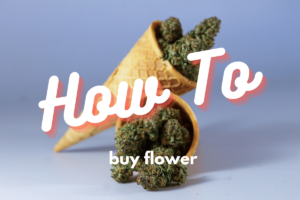"I search through medical journals with regularity searching for consensus on this issue. Often within the very same search, I can find a well-vetted journal paper that espouses the benefits of cannabis for issues such as anxiety and PTSD, yet ten minutes later there will be a paper with fairly severe warnings about possible long-term psychological impacts (psychosis/schizophrenia/etc).
This is frightening, and makes it very difficult to enjoy the benefits of this plant, knowing that researchers seem to conflict so heavily on such a basic topic. Additionally, whenever I ask this question, people seem to get their "dog in the fight" over it rather than helping to either assuage or confirm my fears.
Personally, I’ve had great relief for anxiety from cannabis. But I’ve also had some of the most intense and severe panic, lingering for days afterward from cannabis as well. I hear "use high-CBD strains!", and yet they seem to be hit or miss. I hear "use indicas over sativas", yet I can have a wonderful sativa experience one day, and indicas can throw me into panic the next.
There seems to be no rhyme or reason, and the medical literature seems to confirm this fact. So how can one safely use this medicine without worry of severe anxiety (and the threat of further mental illness)?
"
I am not a medical expert but I do have this to say, which is something that I honestly question because I truly don’t understand:
How does smoking or ingesting thc cause schizophrenia, a disorder known to be genetic??
Not sure if that’s helpful or just more confusing, but the actual advice I suggest when comparing two seemingly equally reputable and valid sources with scientific information about the effects of marijuana:
-
Check the date of the source publication. There’s new information coming out all the time and anti-drug campaigns that site studies done in 1995.
-
Check who is backing the publications or who published the study. Sadly our government is not the best source when it comes to practically any kind of statistic.
-
Consider the agenda of the publisher. Even the WHO and CDC answer to someone. Think of the consequences of what they proclaim to be true; you can’t un-ring a bell but you can say that new findings suggest your previous, more cautionary statements may not be true.
-
Go with your instincts.
It sounds like you’ve had your own experiences to guide you. If something seems off to you then it’s probably worth looking into. If your gut says something is a lie, it probably is.
Anyway, good luck.
LCP
lily_coyote_paw
No, I don’t believe we know what causes the risk of psychological problems in cannabis users because there are far too many factors that have to be controlled for good clinical trials. Most of the information we have regarding cannabis use and the potential positive or negative effects are anecdotal stories not clinical trials. Clinical trials are typically paid for by pharmaceutical companies but they have a vested interest in seeing that their clinical trials have the outcome the drug company, or the Universities funded by the drug companies, wants to see.
When I see patients with psychological imbalances, I cautioned them to not go high with their THC which could aggravate anxiety, anger, panic attacks and increased pain. CBD will tend put those symptoms in remission but when a person has a psychological problem they need stability with their medication. I also don’t usually recommend smoking bud because there’s too much variability and Tinctures or vape pens maybe a much better way to utilize the cannabis for more consistent dosing. If you have psychological problems it maybe best to keep your dose of CBD : THC, higher in CBD since it is the CBD that tend to calm and relax the body relieving stress and anxiety and the CBD is not psychoactive as long as your
CBD: THC ratio is greater then 8:1. If you experience anxiety on a lower dose CBD with equal or higher THC then you need to add in more CBD’s.
I highly encourage you to eliminate Sativa Cannabis until you have learned how to control your anxiety and other symptoms with CBD and lower THC.
Keep in mind, my advice is only a suggestion, you must find out how your body responds to cannabis and maybe in the future we will actually have some honest clinical trials that may help to guide us along the way.
Since imbalance in the neurotransmitters causes psychological problems including schizophrenia, I do encourage that all people with psychological problem consider having their genetic chart mapped for their methylation defects and see a practitioner who can help them with their Methylation Defects called snps (Single nucleotide polymorphism)and that practitioner should be able to provide a Nutritional roadmap around the methylation defects in order to balance the neurotransmitters helping the patient obtained a higher degree of stability in their emotional life.
drolson
Hello there! Having pored over many of the papers that you describe, I think I can answer your question. The clinical trials that you mention ( i.e. the randomized controlled trials using cannabis for PTSD) are performed in a controlled setting with low, pre-set doses of cannabis. However, when you read papers detailing the possible long-term psychological impacts of cannabis use, they all deal with patient population that has HEAVY cannabis use (defined as daily, mult- times a day usage). I always tell my patients about this apparent dichotomy; cannabis seems to have , in pharmacologic terms, what is known as a biphasic response curve. At lower doses, cannabis can have an anxiolytic (anxiety-fighting) effect but at high doses, it can actually worsen anxiety, mood swings.
As to your next question, how can one safely use this medicine, I use the following observations over the years treating patients with mental health issues. There is always the risk with medications designed to help pts with mood and anxiety that things could go south. I’ve had patients on Wellbutrin for years suddenly develop psychosis. I’ve had patients take benzodiazepines develop a paradoxical anxiety attack. Your mental state, factors like the amount of sleep you’ve had, stress levels from work and personal life; these are all factors that might have contributed to the variable responses you’ve had from cannabis products in the past. I have a system that I’ve used with patients that might be helpful for you. I tell patients to keep it "low and slow" with cannabis products: low indicating a low starting dose of the cann. products used and slow referring to the slow speed in terms of redosing.
I understand your concerns and fears. If you are dealing with mental health issues, I would highly suggest what I suggest to all my mental health patients; make sure you are using a multi-modal treatment approach that not only only involves cannabis. Are you part of a behavioral therapy program w/ regular talk sessions? Are you exercising regularly? Are you incorporating mindfulness/ meditation in your daily regimen. Utilizing all these techniques will not solve all problems but I guarantee it will make a difference if you haven’t used them yet. It will give you additional tools to help manage vicissitudes of mood and anxiety. Also check out the ADAA.org site from the Anxiety/ Depression Association or America. Learning more about your conditions can help out. If you have further questions, come on by for a consultation and we can talk further. Good Luck!
drpark





